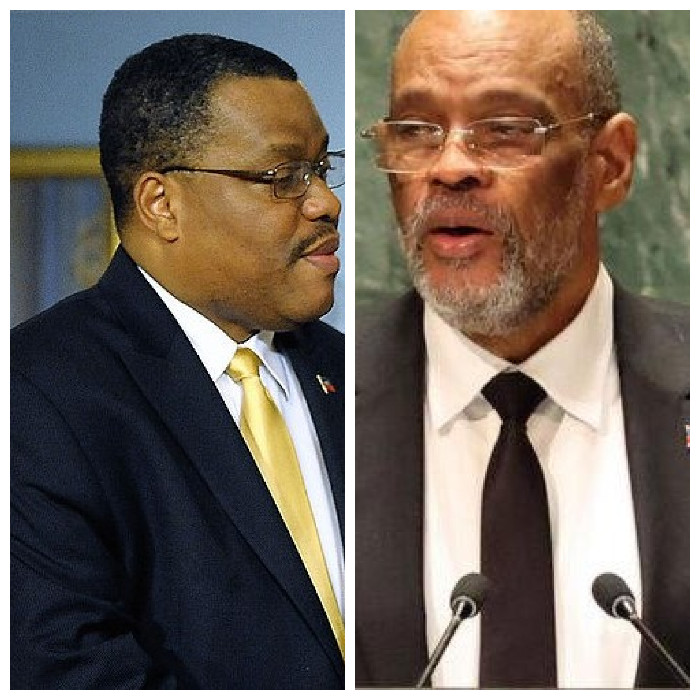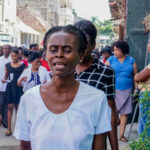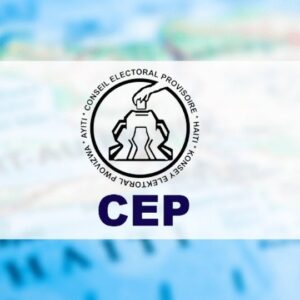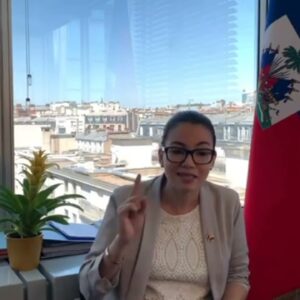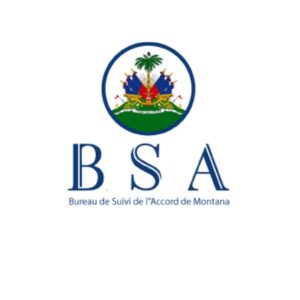a note from the editorial staff
Conille must develop a strategy that is both incisive and comprehensive, in order to stabilize the patient and lay the foundations for lasting convalescence. because the country is suffering from a hemorrhage of violence, an infection of corruption and economic atrophy.
Haiti, as a patient in intensive care, is under the supervision of a new practitioner Prime Minister. Dr. Gary Conille takes the reins after the chaotic “mandate” of Dr. Ariel Henry and SDP-Fusion allies, hoping to bring the reforms needed to stabilize the country, including restoring security to the “lost territories.” But can he really do better than his predecessor and breathe new life into a suffering nation without distancing himself from the main squanderers of Petro Caribe funds?
Dr. Gary Conille, who succeeds Dr. Ariel Henry, shares a common history with Michel Martelly, the former president accused by international reports of contributing to the rise of gangs in Haiti. Martelly, who was sanctioned by several institutions, left behind a legacy of violence and corruption. Dr. Conille, unlike Dr. Henry, former Minister of the Interior and Social Affairs under Martelly, was briefly Prime Minister in 2011. His short experience of four months in power (October 2011 to February 2012), followed by two months additional to carry on current affairs, does not make it possible to predict with certainty or not its capacity to govern effectively in this period of severe crisis and extreme “planned” violence from terrorist gangs.
The state of health of the Haitian nation is critical. The situation under Dr. Henry has worsened: growing insecurity, territories controlled by gangs and a depleted economy. His administration, despite lasting more than 30 months, was unable to reverse the trend. The words of the de facto Minister of Justice Emelie Prophet Milcé, refusing to go to the “lost territories”, symbolize the official abandonment of certain parts of the country to anarchy.
Faced with this deterioration, Dr. Gary Conille must take on the role of a last-chance surgeon. The pathologies to be treated are numerous and complex: restructuring the security forces, restoring state authority, fighting endemic corruption and revitalizing the economy.. The challenges are colossal, and expectations, both national and international, are high.
The urgency is palpable: the first 90 days of his mandate will be decisive in judging his ability to initiate a recovery. Mr. Conille, known for his reformist bent, must prove that his approach can actually produce tangible results. Its strategy must be both incisive and global, to stabilize the patient and lay the foundations for lasting convalescence.
The rehabilitation of “lost territories” is at the heart of this mission. Will it transform these lawless areas into safe and prosperous living spaces? This will require not only vigorous state intervention, but also close collaboration with civil society and international partners. The challenge is immense, but actions taken during this critical period will determine the country’s future trajectory.
The medical metaphor also extends to the international community, which plays the role of the support team. The vigilance and support of this team will be essential to monitor and support the recovery efforts undertaken by Dr. Conille. The world is watching with renewed attention, hoping to see signs of healing emerge from the initiatives taken by this new leader.
For this new treatment to be effective, Dr. Conille must not only break with the practices of the Tèt Kale diet, all versions combined, but also demonstrate an unwavering commitment to the well-being of the Haitian population.
Haiti, sick and weakened, relies on this second doctor to hope for a cure. Can Dr. Gary Conille do better than Dr. Ariel Henry and save a patient on the verge of a coma? The coming months will reveal whether this new intervention can stabilize and revitalize Haiti. In the meantime, the country continues to hope for a resurrection under the leadership of its new doctor at its bedside. Whoever lives will see, but be careful of the sycophants with their spoiled medicines who are already taking their place on board the dilapidated train. They know each other.


